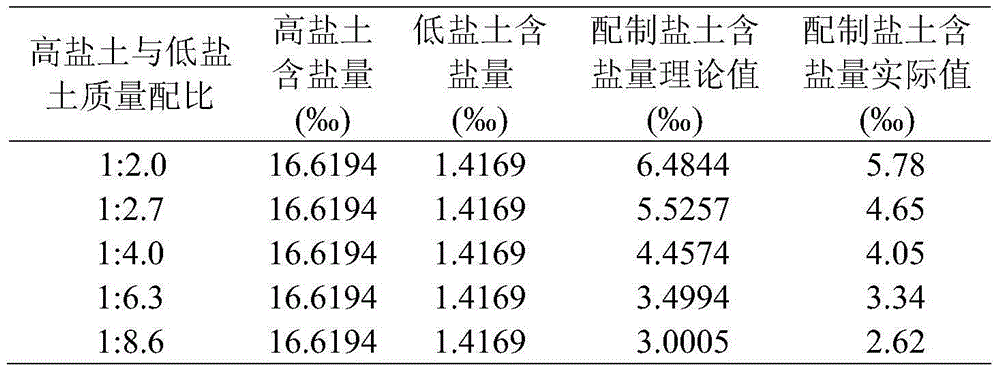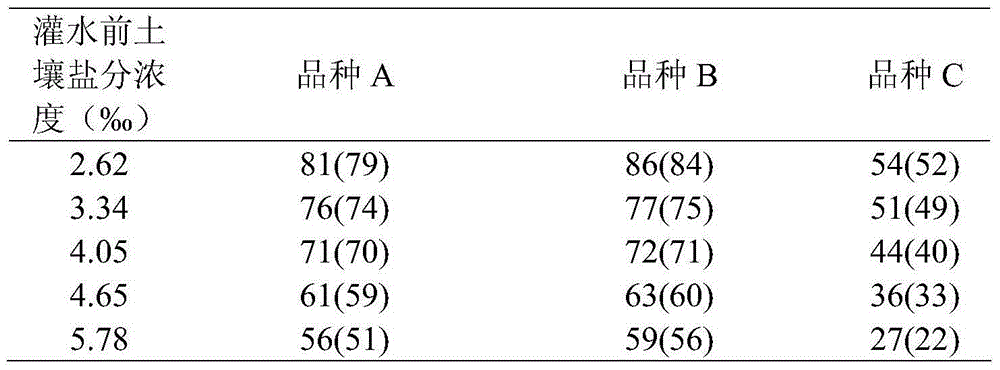Method for screening seedling stage salt-tolerance rice variety
A variety of rice technology, applied in the agricultural field, can solve the problems of inability to accurately simulate the saline-alkali soil environment, unable to reflect dynamic changes, etc., and achieve the effect of overcoming the extremely uneven distribution of salt content and high accuracy
- Summary
- Abstract
- Description
- Claims
- Application Information
AI Technical Summary
Problems solved by technology
Method used
Image
Examples
Embodiment 1
[0015] Example 1: Screening of salt-tolerant rice varieties at the seedling stage in the Yellow River Delta region
[0016] 1 Saline soil preparation for screening salt-tolerant rice varieties
[0017] 1.1 Salt soil preparation method
[0018] The range of salt concentration in saline soil for screening salt-tolerant rice varieties is 1.56‰ to 5.78‰, which can effectively screen out salt-tolerant rice varieties. The actual values of soil salt concentration prepared by this method are all lower than the theoretical value, and the specific configuration method is shown in Table 1.
[0019] Table 1 Preparation methods of saline soil with different concentrations
[0020]
[0021] 1.1 Take soil
PUM
 Login to View More
Login to View More Abstract
Description
Claims
Application Information
 Login to View More
Login to View More - R&D
- Intellectual Property
- Life Sciences
- Materials
- Tech Scout
- Unparalleled Data Quality
- Higher Quality Content
- 60% Fewer Hallucinations
Browse by: Latest US Patents, China's latest patents, Technical Efficacy Thesaurus, Application Domain, Technology Topic, Popular Technical Reports.
© 2025 PatSnap. All rights reserved.Legal|Privacy policy|Modern Slavery Act Transparency Statement|Sitemap|About US| Contact US: help@patsnap.com


